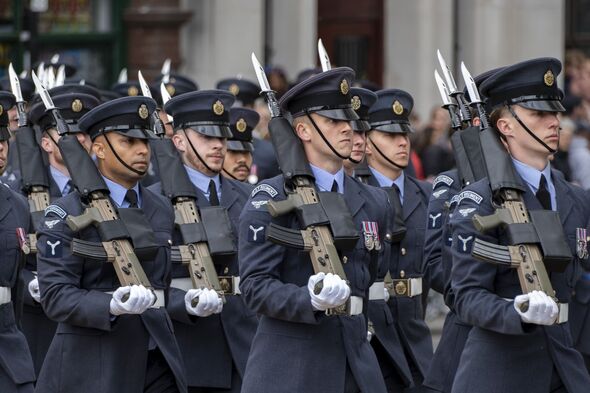
Britain has agreed to sharply increase its defence spending to 3.5 per cent of GDP after coming under pressure from Nato.
Mark Rutte, Nato’s secretary-general, described the decision as “historic” following talks between defence ministers in Brussels, announcing plans to invest more in tanks, fighter jets, air defence, drones and long-range missiles, reports The Telegraph.
The Dutch official proposed raising defence expenditure to 3.5 per cent of GDP, with an additional 1.5 per cent allocated to related infrastructure, aiming to counter the growing threat from Moscow.
Just days earlier, Sir Keir Starmer had pledged in his strategic defence review to spend 3 per cent of GDP on the military by the end of the next parliament — but did not specify how this would be funded.

Rutte has urged the UK to up its defence spending (Image: Getty)
Nato demands UK spend more on defence
That plan was quickly overtaken after Nato demanded the UK increase the figure to 3.5 per cent.
With the Prime Minister now backing the higher target, he faces renewed calls to provide detailed funding plans.
Nato’s first defence spending strategy in over a decade is expected to be finalised at the alliance’s summit in The Hague later this month.
The significant boost in defence budgets comes amid pressure from US President Donald Trump, who warned he could withdraw American support if Nato members fail to meet spending targets.
Nato counters Moscow’s threat
Mr Rutte acknowledged that Nato governments began increasing defence outlays following complaints from Mr Trump during his first term.
But the secretary-general emphasised: “We don’t have to do this because of an audience of one, we have to do this to keep one billion people safe.”
Earlier, US Defence Secretary Pete Hegseth stressed the importance of Britain meeting the new goals in response to Sir Keir’s 3 per cent pledge.
“We think everyone is going to get there, we really do. It’s important they do. It’s important that the UK gets there,” Mr Hegseth said at the Brussels meeting.
Don’t miss…
UK army to spend billions on drones as they become key weapon in Ukraine [LATEST]
NATO humiliates Keir Starmer as flagship defence proposal torn apart [LATEST]
Putin demands NATO stops in its tracks to end Ukraine war [LATEST]
He argued that increased investment from European allies and Canada was vital to keep pace with Mr Trump’s planned $1 trillion defence budget.
“When you consider the threats that we face, the urgency in the world, it’s critical,” he added.
“We don’t need more flags, we need more fighting formations. We don’t need more conferences. We need more capabilities, hard power.”
America makes demands
Critics have warned that America’s demands for higher European defence spending could squeeze budgets for hospitals, schools and other civilian projects.
However, Mr Rutte insisted investment in weapons was more essential than ever, highlighting that Russia currently produces as much ammunition every three months as Nato does in a year.
“For the next three years, we are fine, but we have to start now. Otherwise, three, four, five years from now, we are really under threat,” he said.
“I may be using rhetoric here, but I really mean it that you will have to get your Russian language course or go to New Zealand.”
Discussions on the precise details of the defence spending pledge ahead of The Hague summit will continue in the coming weeks.
Hegseth confident
Leaving Brussels, Mr Hegseth expressed confidence that an agreement would be reached.
“Countries in there are well exceeding 2 per cent, and we think very close, almost near consensus, on a 5 per cent commitment for Nato in The Hague later this month,” he said.
Mr Hegseth also described it as “heartening” to hear European partners agree to reduce their reliance on the US for continental security.
Meanwhile, Defence Secretary John Healey, without mentioning the 5 per cent target, said “war-fighting readiness” would be central to future plans for Britain’s armed forces.




Most Popular Comments
1st Most liked comment • 35 minutes ago3
“I didn’t hear you complain while the US for decades spent way more than the UK.”
2nd Most liked comment • 34 minutes ago3
“Just so the EU can hide behind our skirt when the proverbial hits the fan, just like …”
3rd Most liked comment • 1 hour ago2
“Wow, the sheer arrow gance of that answer”